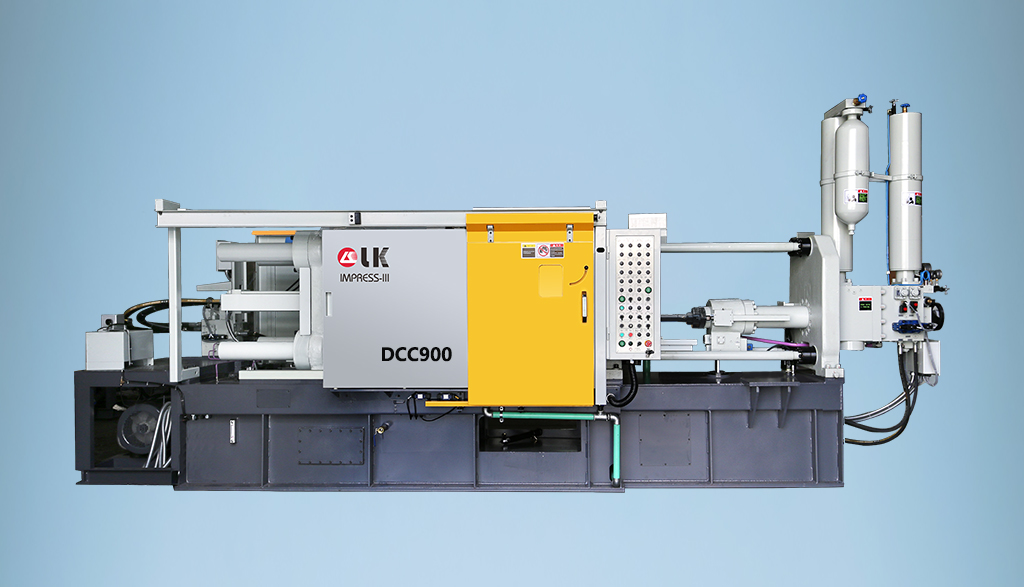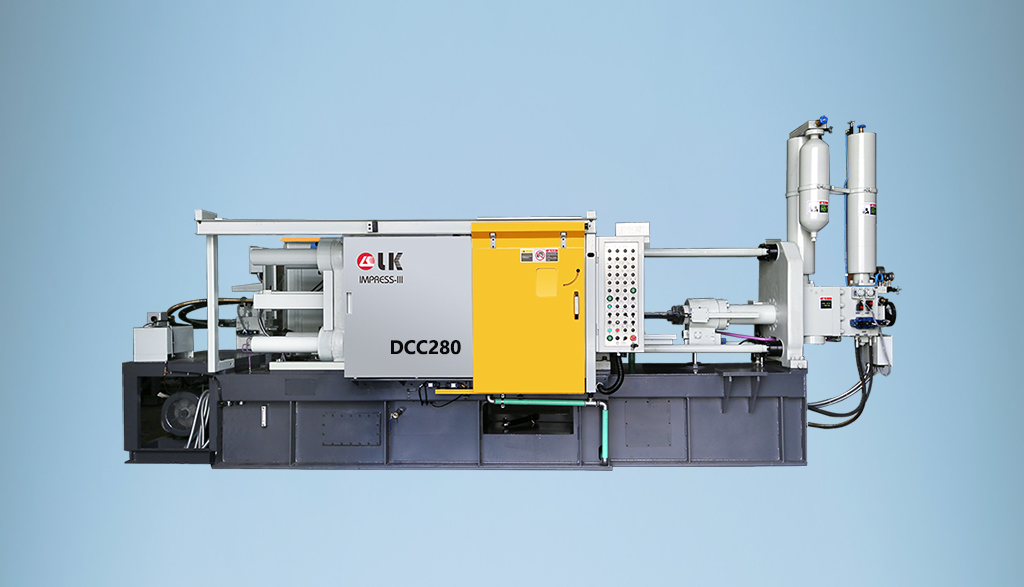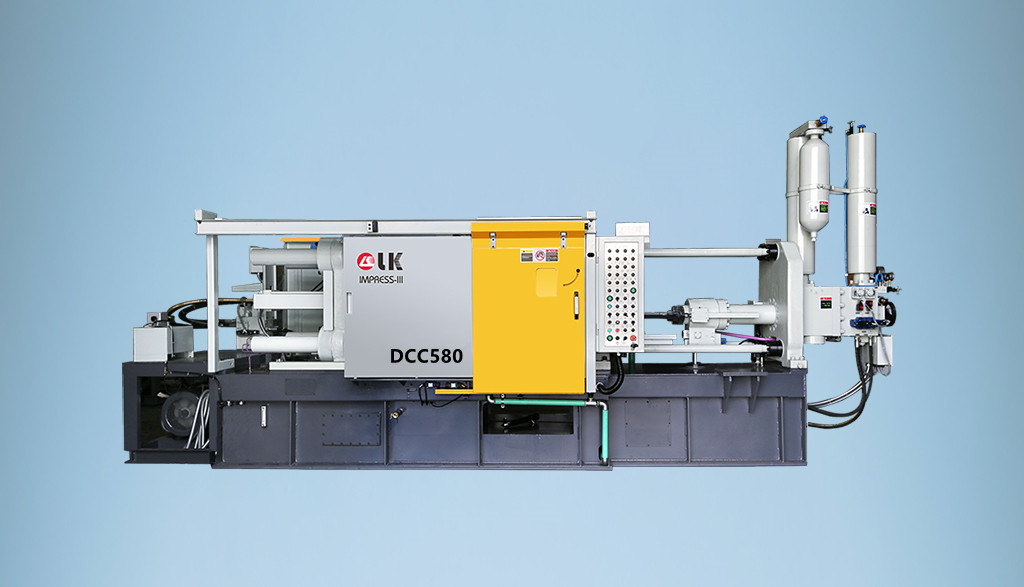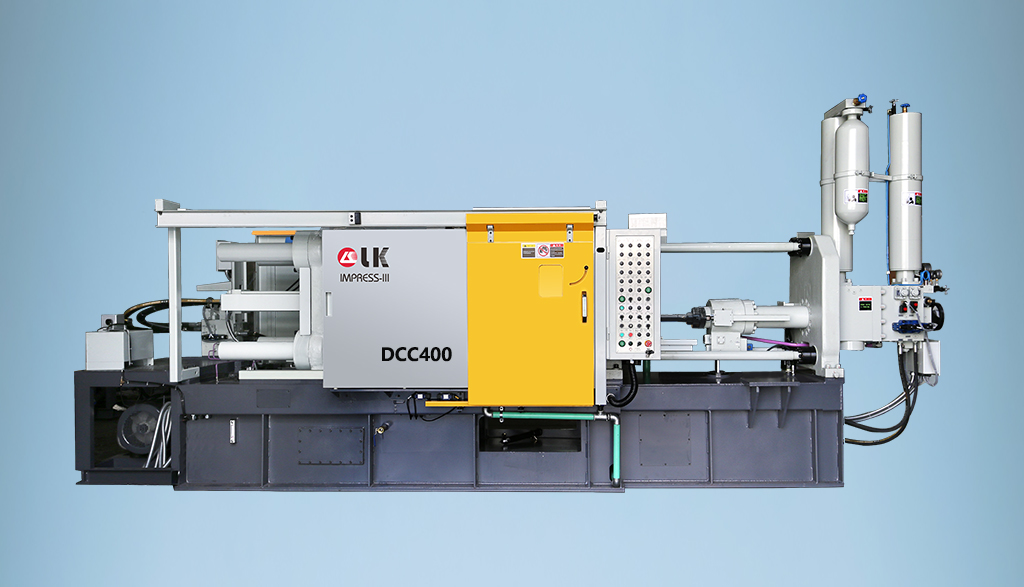Benefits of Recycling Aluminium
LK Die Casting Machine / 2024-08-30 17:07:11
2024-08-30 by Cherry
Introduction
Today, with the increasing scarcity of global resources,
the recycling of materials has become an important
issue that cannot be ignored. As a widely used metal,
the value and significance of aluminum recycling are
particularly prominent.
This article will explore the multiple benefits of
recycled aluminum, analyze its huge impact in the economy,
environmental, and industrial fields, and explain the
important role of recycled aluminum in the die-casting machine
process. Through these contents, we hope to help readers better
understand the importance of recycled aluminum and its
irreplaceable position in modern manufacturing.
Unique properties and wide application of aluminum
Aluminum is a lightweight, corrosion-resistant metal with
excellent electrical and thermal conductivity. It is widely
used in many fields such as construction, transportation,
electronics, and packaging.
The demand for aluminum products continues to grow with
the development of technology and industry. However,
the production process of aluminum consumes a lot of
energy, so the recycling of aluminum has become a key
sustainable development strategy.
1. Lightweight: The density of aluminum is only one-third
of that steel, making it an ideal material for aerospace,
automotive manufacturing and consumer electronics.
2. Corrosion resistance: A layer of aluminum oxide film
can be formed on the surface of aluminum, protecting the
internal metal from further corrosion and extending its
service life.
3. Electrical and thermal conductivity: Aluminum's superiority
in power and heat, conduction has made it widely used in electrical
equipment and radiators.
Environmental benefits of recycled aluminum
One of the biggest benefits of recycled aluminum is its significant
environmental benefits. Compared with the production of primary
aluminum, recycled aluminum can significantly reduce energy
consumption and greenhouse gas emissions.
Social benefits: The development of the scrap aluminum recycling
industry can create jobs, improve people's living standards,
promote industrial upgrading, and promote local economic
development.
In addition, scrap aluminum recycling can also reduce dependence
on natural resources and reduce damage to the natural environment,
which has important social and environmental significance. 67
Related policy support and market prospects:
Policy support: Many countries have corresponding scrap aluminum
recycling policies and regulations, such as tax exemptions,
subsidies, and other policy support to promote the development
of the scrap aluminum recycling industry.
Market prospects: With the development of the global economy
and technological innovation, the market demand for the scrap
aluminum recycling industry will gradually increase, bringing
more opportunities and challenges for entrepreneurs
Reduce energy consumption:
1. The production of primary aluminum needs to be extracted
from bauxite by electrolysis, which consumes a lot of electricity.
Recycling aluminum only requires 5% of the energy required
for primary aluminum production, which is about 95% less
than the energy consumption required to extract aluminum
products from ore, greatly reducing energy consumption.
This energy saving not only reduces the use of fossil fuels
but also reduces the carbon dioxide emissions generated in
the process of electricity production, which is of great
significance to slowing global warming.
Reduce waste and environmental pollution:
1. Recycling aluminum can effectively reduce the generation
of waste and reduce the burden on landfills. Even if aluminum
products are used for many years, their metal properties
can still be maintained through recycling and regeneration.
2. The recycling process of aluminum is relatively simple
and does not require complex chemical treatment, thus reducing
pollution to the environment.
3. Recycling aluminum can reduce the generation of waste,
reduce environmental burden, reduce pollution, and avoid
waste gas and wastewater generated during aluminum production.
Protect natural resources.
4. The mining of bauxite not only consumes resources
but also may cause damage to the ecological environment.
By recycling aluminum, we can reduce our dependence on
primary aluminum ore and protect the earth's natural
resources.
Economic benefits of recycling aluminum
In addition to environmental benefits, recycling aluminum also
has significant economic benefits. With the continuous growth
of global aluminum demand, recycling aluminum has become an
important means to reduce production costs and enhance corporate
competitiveness.
Cost savings:
1. The cost of recycling aluminum is much lower than that of
producing primary aluminum, especially when energy prices
fluctuate greatly, the cost advantage of recycling aluminum
is more obvious.
2. Recycling aluminum can reduce the production cost of enterprises,
because recycled aluminum does not need to go through the entire
refining process, saving a lot of costs.
Aluminum recycling can be obtained by smelting old aluminum products.
Compared with primary aluminum production, its process is
shorter, and equipment investment and operating costs are lower.
Market demand:
1. With the increasing awareness of green environmental protection,
more and more consumers and enterprises tend to choose sustainable
products. Products made of recycled aluminum are more attractive
in the market and can meet environmental regulations and consumer
expectations.
2. The market demand for recycled aluminum continues to rise,
prompting the aluminum industry to continue to innovate and
optimize recycling technology and efficiency.
Economic development and employment:
1. This extension of the industrial chain not only increases
economic output but also enhances the overall economic resilience
of society.
2. The scrap aluminum recycling industry has a higher profit
margin because the cost of scrap aluminum recycling is relatively
low, and the market demand for aluminum is large, the price is stable,
and there is a good economic benefit
3. The recycling of aluminum promotes the development of the circular
economy and drives the growth of related industrial chains.
The expansion of the recycled aluminum industry has created a
large number of employment opportunities for the society.
From the collection, classification, and transportation of
scrap aluminum to the production of recycled aluminum, every
link requires the input of human resources
4. The development of the scrap aluminum recycling industry
can create employment opportunities, improve people's living
standards, promote industrial upgrading, promote local economic
development, and have good social benefits.
Application of recycled aluminum in die-casting machines
Die-casting machines are an important metal-forming equipment
that is widely used to manufacture aluminum alloy parts of
various complex shapes. The use of recycled aluminum in the
die-casting process not only effectively utilizes resources,
but also improves the economy and environmental protection
of the product.
Material reuse:
1. The use of recycled aluminum in the die-casting process
can significantly reduce production costs while ensuring the
performance and quality of the product. Due to the good
regeneration performance of aluminum, recycled aluminum
can still maintain its excellent casting performance during
the die-casting process.
2. Die-castings made of recycled aluminum can achieve the
same mechanical properties as primary aluminum die-castings,
such as tensile strength, hardness, and ductility, meeting
the requirements of various industrial applications.
Die casting process optimization:
1. The application of recycled aluminum in die-casting machines
promotes process optimization, such as controlling alloy
composition and impurity content during melting and casting
to improve product consistency and reliability.
2. Modern die-casting machine equipment is equipped with advanced
control systems that can accurately adjust temperature and pressure
to ensure that the quality of recycled aluminum castings meets
or exceeds the expected standards.
Application cases:
1. In the automotive industry, the use of recycled aluminum
die-casting parts has become a common practice. Engine parts,
gearbox housings and body structural parts can all be made
from recycled aluminum, which not only meets the requirements
of lightweight, but also achieve environmental protection
and cost-effectiveness.
2. The housing and structural parts of consumer electronic
products are also important application areas of recycled
aluminum. With the accelerated replacement of electronic
products, the demand for recycled aluminum will further increase.
Social and cultural impact of recycled aluminum
Recycled aluminum not only has a positive impact on the environment
and economy but also has far-reaching social and cultural
significance.
By promoting the recycling of aluminum, we can raise public
awareness of environmental protection and
promote the formation of a sustainable development culture.
Enhancement of environmental awareness:
1. The recycling process of aluminum demonstrates the importance
of resource circulation to the public. Through community recycling
activities and environmental education, more people are involved
in the recycling of aluminum.
2. This awareness has led more companies and consumers to pay more
attention to environmental performance in product selection,
promoting the transformation of the entire society into a green
development.
3. Recycling aluminum can reduce pollution to the environment,
reduce greenhouse gas emissions, and help improve the public's
awareness of environmental protection.
Social responsibility:
1. Companies in the aluminum recycling industry have not only
improved their image but also enhanced their brand value by
assuming environmental responsibility. This manifestation
of social responsibility gives companies an advantage in the market
competition.
2. The public's attention to corporate environmental behavior
has prompted more companies to spontaneously promote and apply
recycled aluminum, forming a virtuous circle and promoting
the sustainable development of the entire industry.
Cultural inheritance and education:
1. Recycling aluminum is not only an environmental behavior
but also a cultural inheritance. By promoting the concept
of recycling aluminum, we can pass on this spirit of sustainable
development to the next generation.
2. Schools and social organizations can carry out educational
activities related to aluminum recycling to let children establish
awareness of resource conservation and environmental protection
from an early age, and cultivate qualified citizens for a
future green society.
Related policy support and market prospects:
Policy support: Many countries have corresponding waste aluminum
recycling policies and regulations, such as tax exemptions, subsidies
and other policy support to promote the development of the waste
aluminum recycling industry.
Market prospects: With the development of the global economy and
technological innovation, the market demand for the waste aluminum
recycling industry will gradually increase, bringing more opportunities
and challenges to entrepreneurs
Future Outlook: The potential of recycled aluminum in emerging
technologies
With the development of science and technology, the potential
of recycled aluminum in the field of emerging technologies
is constantly emerging.
Whether it is the application of 3D printing technology
or the development of intelligent manufacturing,
recycled aluminum has demonstrated its great potential in the
future manufacturing industry.
Application in 3D printing technology:
3D printing technology is developing rapidly, and recycled
aluminum powder, as part of 3D printing materials, has demonstrated
its potential for application in the manufacture of complex
parts. By optimizing the powder preparation process of recycled
aluminum, the quality, and performance of 3D-printed parts
can be further improved.
Integration in smart manufacturing:
Recycled aluminum plays an important role in smart manufacturing.
Through intelligent recycling and regeneration processes,
the utilization efficiency of aluminum will be greatly improved.
This not only reduces manufacturing costs but also reduces
dependence on natural resources, and promotes the development
of manufacturing towards green and intelligent directions.
New material research and development:
The performance optimization of recycled aluminum and
the research and development of new materials will further
expand its application range.
For example, by adding other alloy elements or improving
the regeneration process of recycled aluminum, more competitive
materials can be developed for high-end fields such as aerospace
and medical devices.
For more info, you can refer to:
https://www.tiktok.com/@lk_diecastingmachine/video/7405113006880820522
https://www.youtube.com/shorts/JLX410QV_kw
To learn further info about Die Casting Machines,
pls contact LK Die Casting Machine Authorized Official Agent
LK OFFICIAL AGENT OFFICE DCM
LK Die Casting Machine Authorized Official Agent for Egypt(EGY)
Saudi Arabia(ksa)
United Arab Emirates(UAE)
The Islamic Republic of Iran(Iran)
Qatar(QAT)
The State of Kuwait(Kuwait)
The Middle East
Address: 1. Industry Zone, South of Port Said Kebly, Cairo, Egypt
2. EX 14., EASTERN RING ROAD, AI RAYAN DISTRICT,
RIYADH, SAUDI ARABIA
Arabic Website: https://ae.zazdiecasting.com/
English Website: https://www.zazdiecasting.com/
Phone/WhatsApp/Wechat: 0086 13598704163
Mobile: +20 101 304 3317 +20 150 181 8310
Email: jack@zazmae.com ahmedmahmoud@zazmae.com
OTHER CONTENT
-

2024-09-19 14:16:15 LK Cold Chamber Die Casting Machine DCC900 Locking Force: 9000KN Die Height: 400-1000mm Space Between Tie Bars: 930x930mm Shot Weight: 13.5Kg Casting Area Max:2250c㎡
More -

2024-09-19 14:11:06 LK Cold Chamber Die Casting Machine DCC280 Locking Force: 2800KN Die Height: 250-650mm Space Between Tie Bars: 560x560mm Shot Weight: 2.9Kg Casting Area Max:700c㎡
More -

2024-09-19 10:23:07 LK Cold Chamber Die Casting Machine DCC580 Locking Force: 5000KN Die Heigh: 350-850mm Space Between Tie Bars: 760x760mm Shot Weight: 6.9Kg Casting Area Max:1250c㎡
More -

2024-09-19 10:11:20 LK Cold Chamber Die Casting Machine DCC400 Locking Force: 4000KN Die Height: 300-700mm Space Between Tie Bars: 669x669mm Shot Weight: 4.7Kg Casting Area Max:1000c㎡
More

